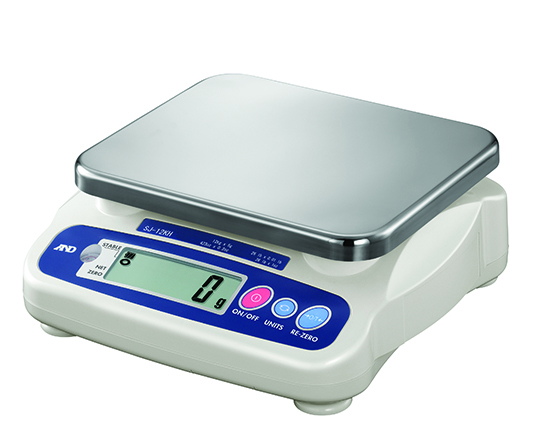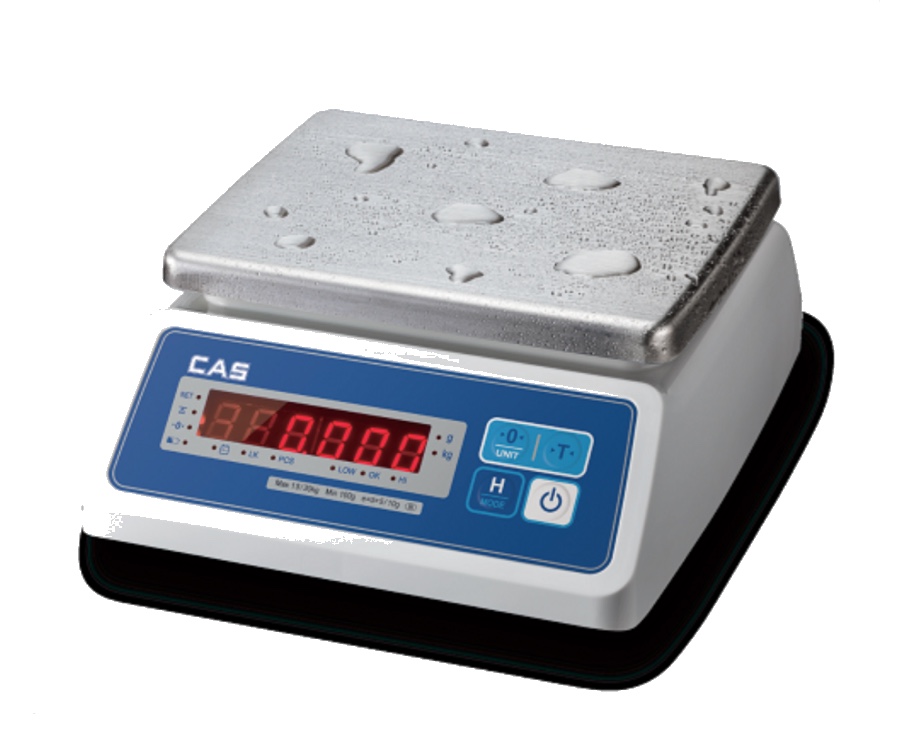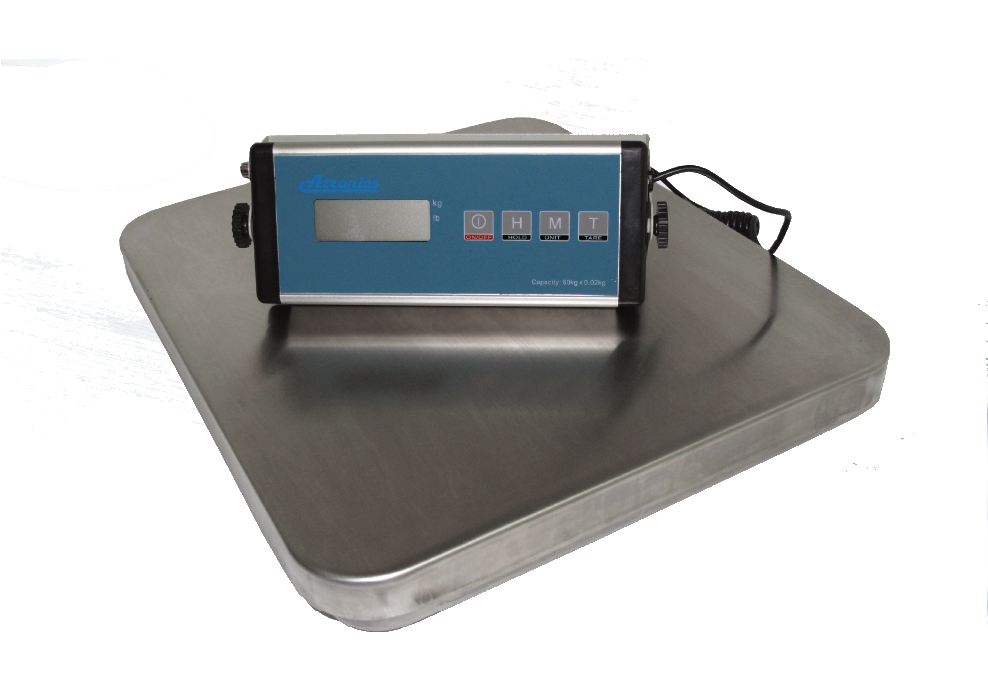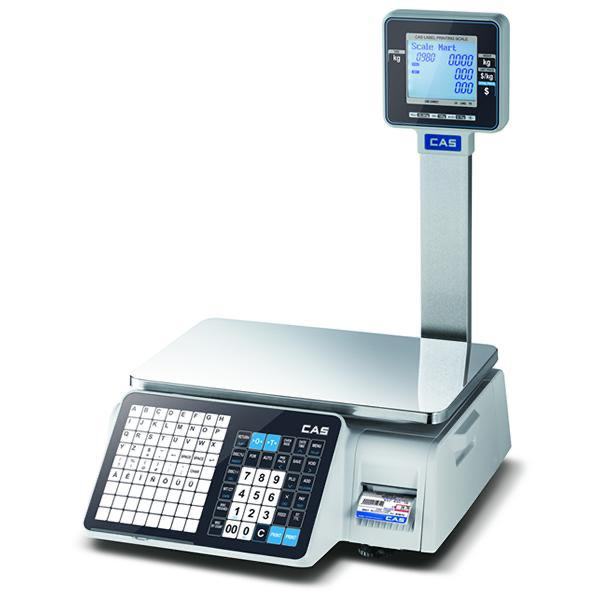Weighing and POS Scale Terminology
Compubox have been selling and supporting scales since 2010.
This page has been created to clarify some of the confusing terminology and laws that comes with owning and operating a scale, and will hopefuly help to clarify the following terms: Certification/Stamping, Verification/Calibration, Trade-Approved and Non-Trade Approved.
What is a Trade Approved scale?
Simply put: If you are buying and selling services and goods by weight, you need a trade approved scale. In other words, a trade approved scale, is a weighing device that is certified for use in retail and trade applications.
The most common type of trade approved scales are the scales you find in butchers, supermarkets, coffee bean roasters, green grocers, or the post office and include digital scales, floor scales, bench scales, pallet scales.
Scales that are used to sell goods by weight in Australia, are goverened by law by the National Measurement Institute ("NMI"), who recently stated that " Australians expect business to have accurate scales so that no one is being over or under charged" They also stated: "Australia’s trade measurement transactions are worth more than $900 billion each year, consumers and business owners both need to have a reliable weighing and measurement system in place."
The NMI performs rigorous verification and testing of scales in Australia used in trade, to ensure their suitability and accuracy for trade purposes, to ensure that scales maintain a high level of reliability and accuracy and reliability over time.
Official verification of Trade-approved scales are done by accredited NMI personnel, to ensure they meet the NMI's requirements. The NMI will issue fines and penalties to businesses who fail to use trade approved scales when requried by law.
What is the difference between a 'Trade Approved' and 'Non Trade Approved' scale?
Trade Approved:
The NMI performs rigorous verification and testing of scales in Australia to gain the status of "Trade approved" for use to weight goods in trade, to ensure their suitability and accuracy for trade purposes over an extended period of time.
There are a number of steps for a scale to be approved for trade, namely: The NMI must allocate a unique NMI approval number to that model scale, A servicing licensee tests and calibrates the scale following a defined set of procedures, once the scale passes the tests a report is issued for traceability, and a verification sticker is attached to the scale.
Non-Trade Approved:
Scales that are used internally (Non-legal-for-trade scales), are weighing instruments used for internal purposes, such as in laboratories, warehouses or for parcel shipping, where accuracy is subject to Australian legal trade regulations. Non-Trade approved scales do not have to undergo the same rigorous testing and certification process required by the National Measurement Institute (NMI).
Non Trade scales are mostly cheaper than Trade Approved scales, given that they are not required to go through the same rigorous testing process.
What is Scale Calibration / Verification, and is it required by Law in Australia?
Scale Calibration is the process of testing the scale, using approved weights, and a step by step process on the scale, to ensure the level of accuracy you require on the scale. Inaccurate scales could significantly hurt your business.
And YES, scale calibration is required by law for scales / weighing instruments used in trade applications only, in Australia. The NMI requires that these scales are calibrated to ensure accuracy and compliance with trade measurement laws. Legal-for-trade (Trade-Approved) scales need to be verified and calibrated to meet the standards set by the NMI.
If you use your scale internally for Shipping, in a Laboratory or in a Warehouse for non trade purposes, it is NOT required by law, but is still advised to calibate your scale on a regular basis to ensure accuracy for your internal processes or purpose.
What is the Purpose of Scale Calibration?: Calibration ensures that the scales are accurate and provide reliable weight measurements for trade transactions. Using unverified or improperly calibrated scales for trade can result in fines imposes bu the NMI
The NMI's Role: The NMI is responsible for enforcing and establishing Australian trade measurement laws, including the calibration requirements for weighing instruments, says the Department of Industry, Science and Resources. Accurate weight measurements are crucial for fair trade practices and to ensure consumers (and business owners) are not short-changed.
What is Scale Stamping / Certification, and is it required by Law in Australia?
Scale stamping, also known as scale certification, is the process of ensuring that scales used for trade purposes (Trade Approved Scales), are accurate and reliable. Stand alone scales, not connected to a Point Of Sale Software, can be certified remotely before it is dispatched. Scales that will be connected to a Point Of Sale Software, needs to be certified for the specific on-site location the scale will be used at. The process involves testing and verifying the scale's accuracy against established standards.
Once approved, the scale certifier will affix a stamp on the scale, indicating that the scale has passed the verification process and now meets regulatory standards. The stamping certificate must be kept for inspections by the NMI.
For Trade Scales used in commercial transactions, where weighing is part of the sale process (e.g., in grocery stores, butcher shops, bakeries), Stamping ensures that the scales provide accurate weight readings, which is essential for fair trade and consumer protection.
Before Stamping, scales undergo a Calibration process to ensure they are working within the specified accuracy range, an once Calibrated and Verified, the scale is Certified / Stamped, meaning it has been officially approved for trade use with a POS System / Software.
Why does Trade Approved Scales and Weighing Systems cost more?
These scales are submitted to NMI for stringent analysis and testing, and this takes time and requries a significant financial investment.
Examples of popular NMI Trade Approved Scales in Australia:
CAS PD-II ECR Weigh Only ECR & POS Interface Scale (PDII)
CAS CL3000 Label Printing Scale (Optional Pole)
Examples of popular NON Trade Approved Scales in Australia:
A&D Compact Bench Weigh Non Trade Scale – SJ-HS Series
More detailed information can be found at:
NMI - Australia’s measurement system
NMI - Australia’s buying and selling goods and services by weight and other measurements
If you need help understanding the corrrect type of scale or trade measurement requirements for your business we can help, please email your requiremts through to info@compubox.com.au for a fast response.





